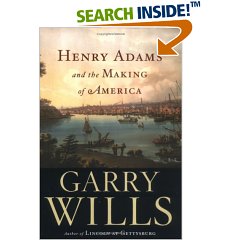The title of this post is a mouthful, and makes sense to no one but me. And I’m not really sure it makes sense to me yet, either. All of the above have something to do with one of the first posts I wanted to make on this blog, and also with why I have yet to make it. Basically I want to lay out what motivates me in my study of history in general and the American Civil War in particular, and what I see as problems with the approaches taken by some historians, authors, and students in analyzing actions taken and decisions made. Keep in mind that I am not a trained historian: my undergraduate and post-graduate degrees are in business, and I earn my living as a real estate appraiser and teacher. So this “philosophy”, as it were, is mine and mine alone.
 But I’m having a real problem putting these thoughts together in a way that will be accurate and meaningful. And every couple of days something happens or I read or hear something that I think would be appropriate for inclusion. Everything in the title of this post has caused me to pause, the most recent distraction being Garry Wills’ Henry Adams and the Making of America. In this book, Wills reveals how the uncritical acceptance of prior historians’ evaluations and characterizations of Adams’ multi-volume history of early 19th Century America has resulted in a widespread misunderstanding and misrepresentation of that work. I’ve only read about 100 pages (I’m a very slow reader), but so far I have to say this is one fine book, very well researched, written, and argued.
But I’m having a real problem putting these thoughts together in a way that will be accurate and meaningful. And every couple of days something happens or I read or hear something that I think would be appropriate for inclusion. Everything in the title of this post has caused me to pause, the most recent distraction being Garry Wills’ Henry Adams and the Making of America. In this book, Wills reveals how the uncritical acceptance of prior historians’ evaluations and characterizations of Adams’ multi-volume history of early 19th Century America has resulted in a widespread misunderstanding and misrepresentation of that work. I’ve only read about 100 pages (I’m a very slow reader), but so far I have to say this is one fine book, very well researched, written, and argued.
So the long and the short of it is that I have yet to finish the post in question, but I’m previewing it here to spur myself on. I’m still influenced by traditional print in that I feel my post should be fully formed and self contained, and I think this wastes some of what makes this medium unique and valuable. Bear with me.

Harry,
I am hugely skeptical of Wills thesis. I have read Adam’s histories and the idea that they are secretly written to praise Jefferson seems like a giant stretch to me.
– Will
LikeLike
Will,
My reading so far of Wills (I have not read the 9 volumes of Adams in question) says nothing of any “secret” writing, rather it states that the character of the histories is plain. In addition, Wills does not say that Adams is uncritical of Jefferson so much as he was very critical of the Federalists and judged the Jeffersonians a success, and his other writings seem to support this. Wills argues that what he sees as a misrepresentation of the histories is due to three factors:
Historian Richard Hofstadter, the most influential of the interpreters of the histories, had only read the first six chapters of Volume I of Histories and “accepted that as a description of the whole work”, and this interpetation is refuted by the final four chapters of the last volume;
Historians have accepted Hofstadter’s thesis that Adams was a defender of the legacy of his great grandfather John, while Adams’ writings in general do not defend the Federalists, nor the Adams family – “It is true that he criticizes some of Jeffersons’ acts in the History; but he is never as scathing on them as he is on the Federalists, including his forbears. He thought the Jeffersonians’ presidencies highly successful (though in an unintended way) and the Adams presidencies a failure. Yet it is an article of faith in most who read the History that it is an expression of family animus”;
The pessimism of The Education of Henry Adams is thought to be characteristic of his whole life, while his earlier writings are clear that is is not. “Scholars have such a heavy investment in the pessimism of Henry Admas that, for them, an optimistic Adams cannot be the ‘real’ Adams”. “The theme of failure that runs through the Education bolsters an assumption that Adams is telling the story of a failure when he writes of the Jeffersonians. If the work itself says something else, people are unprepared to hear it. They know what Adams ought to be saying, and they make him say it.” But this is the quote that hit me hardest: “The principal work on Adams was written by…Ernest Samuels, whose three-volume biography traces a rising arc to the summit of a “Major Phase” in the final volume. All else is preparatory to that. All else is read backward from that [emphasis added]”.
Now I am presented with two divergent views of the Histories. Not having read them myself, I’ll have to rely on the arguments of those who have. Feel free to elaborate, Will.
LikeLike
[…] here’s how these next few posts will go. In short, I’ll explain the title to the post Camelot, Harsh, Littlefield, Reardon, Paired Sales Analysis, Wills, and Henry Adams. All of those people and things help in describing these disorganized thoughts on how history is […]
LikeLike